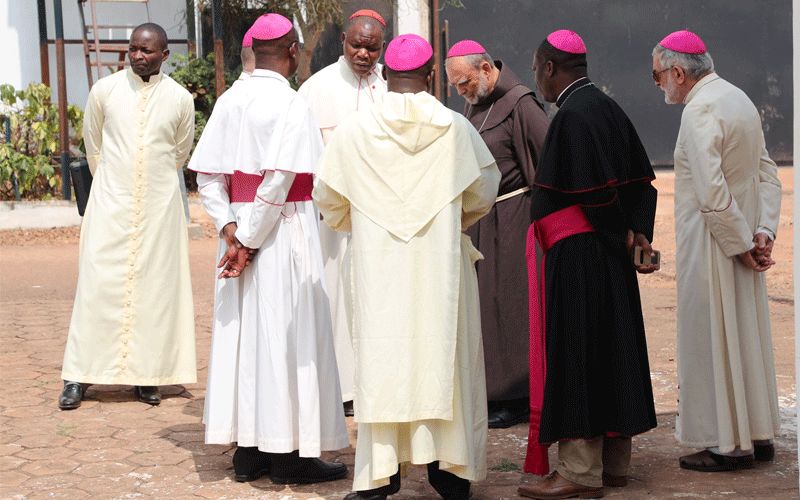“It is not our responsibility to say who the candidates will be, nor to proclaim the winner or the loser of the election,” they clarify and “appeal to the responsibility and the spirit of consensus of all stakeholders for a peaceful and accepted election.”
For them, “Actions that are detrimental to the electoral process should be avoided. Any recourse to violence as an expression of demand is to be prohibited.”
During their weeklong meeting, the Bishops also deliberated about COVID-19 pandemic that has infected at least 4,599 people in CAR including 1,546 patients who have recovered and 59 others who have succumbed to the disease.
“We have certainly adhered to preventive measures by closing schools, reducing the number of those attending Mass to 15, suspending the activities of movements, fraternities and prayer groups, as well as the celebration of the sacraments of Baptism, Confirmation, Marriage and Funeral,” the members of CECA say.
They continued, “We organized sensitization sessions through rural, local and community radio stations. We encouraged the faithful to pray in families and to follow Mass on the radio.”
(Story continues below)
That some people in the country doubt the existence of the coronavirus is regrettable, the Bishops say, and express their solidarity with those who have been adversely affected by the restrictions put in place to curb the spread of the disease including those who have lost their jobs.
They go on to express their appreciation for the help the leadership of their country has received from other nations in tacking the pandemic and encourage the multiplying of “acts of solidarity with coronavirus victims and vulnerable people.”
The Bishops also express their solidarity with “the suffering of the sick and the bereaved families” and caution against forgetting “other pathologies such as HIV/AIDS, Malaria, Diabetes, Tuberculosis, Measles.”
“Let us mobilize to fight more effectively against the coronavirus pandemic. Let us create the necessary conditions for the exercise of civil and political rights and for a better adherence of all the Central African people to a democratic electoral process,” the members of CECA say in their collective letter.
They add, “Let us work together for structural changes in our society for our social, economic, political and religious liberation and to build the new Central African Republic willed by God in Jesus Christ our Lord.”
Jude Atemanke is a Cameroonian journalist with a passion for Catholic Church communication. He holds a Bachelor’s Degree in Journalism and Mass Communication from the University of Buea in Cameroon. Currently, Jude serves as a journalist for ACI Africa.








